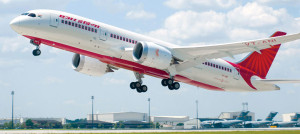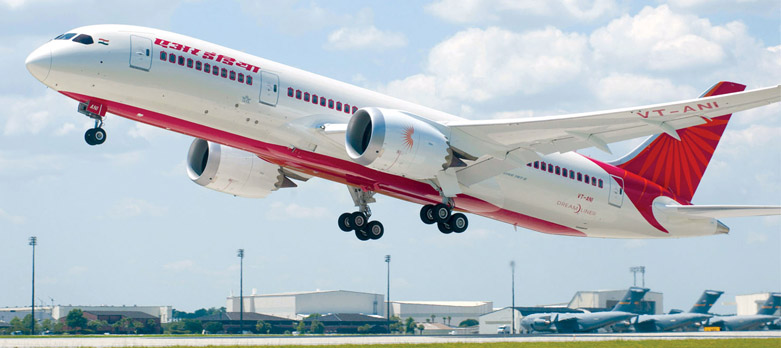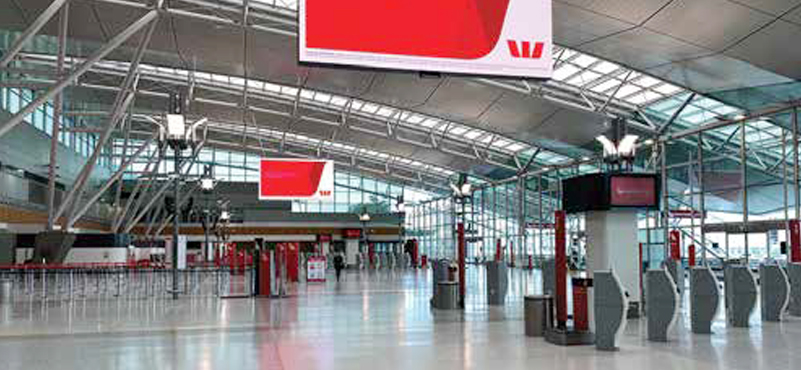Thinking of 5/20 invites an obvious reference to 20/20. What is the difference between the two? One is playing the game, the other not. The first is saying let us slug it out, the other is saying that only restricted play will be allowed on the field?
 5/20 is archaic, was invented to thwart competition, effectively ruling others out. It was creating a protective turf, a cushy playing field, where you can choose to bowl or bat, and never needed to look back. You scored at will. In a way, it was a level playing field, in that the level was dictated by you alone. It is a harsh reminder of an era when laws could be made to protect those close to corridors of power. It created a wall around your own team, or aircrafts in this case.
5/20 is archaic, was invented to thwart competition, effectively ruling others out. It was creating a protective turf, a cushy playing field, where you can choose to bowl or bat, and never needed to look back. You scored at will. In a way, it was a level playing field, in that the level was dictated by you alone. It is a harsh reminder of an era when laws could be made to protect those close to corridors of power. It created a wall around your own team, or aircrafts in this case.
This government has been in power for over a year and half. From day one, it has been talking of ease of doing business. Implied in this for the aviation sector, is that rules like these would go. Spice Jet’s Ajay Singh, in a recent television interview, said that the entire sector needed a holistic look, and bring about all reforms or none, and seemed to question a piece meal approach. Does this sound logical? Some reforms do not need a larger perspective in that what they represent is crystal clear. We believe that while a larger policy is under formulation, it is rules like these that can be wished away, and fast. And they will send the signal that this government means business.
What could be the options to 5/20? In the past, a convoluted package was suggested as an alternative, even more backward than the existing rule, and so difficult to comprehend, an airline would need a full department to monitor it. There are suggestions to prune down 5/20 to 3/5 or some such thing. Just simply do away with it. And ask the protesting airlines, to quantify how it will affect them, and if their fears are legitimate, find solutions for them. If they are not, then ask them to sit aside. If this is difficult, hand over the issue to a tribunal of eminent citizens and ask them to mediate and find an answer within a week. But do not let it carry on, showing a sense of paralysis in decision making – that choice of expression should hopefully set the pace!
Over these years, the aviation scene is losing ground to foreign carriers – on every sector, it is heavily weighted in favour of the “other country” carrier. Indian carriers are neither not there or do not count. Most sectors our carriers do not fly, or have a token presence, most bilateral rights remain underutilised. Why is this important? Simply, because all foreign carriers, and with no exception, are keen on India for access to the vast Indian market. They are not, and it will remain doubtful if they ever would be, committed to growing Indian aviation per se except to build their presence to capture the Indian market – one of the few growth markets and growing faster than most. In terms of volumes, and the Indian middle class, India remains a prime market for every airline in the world.
This magazine does not represent any business interests; we are talking of an aviation policy that builds Indian aviation, is beneficial to Indian skies, and helps the Indian traveller. Yes, Ajay Singh is right in that we need a holistic approach. There are too many anomalies. One sector is eating into the other, eroding into its viability and sustainability. But there are issues and policies that stand apart, and are not allowing the sector to grow, and can be acted upon, without hurting anyone, or a few. But then the larger growth has to be sought, not individual good. Whom does the removal hurt?
Indigo and Spicejet have no aircraft orders that can take them beyond a five hour flight, and this effectively rules them out from becoming any significant players for international routes. At least, in the visible future, we can’t see any plans. Then, what is their problem, when they do not have any business plans of their own on international routes? In fact, if new entrants are given the opportunity to fly overseas, it may leave the domestic skies safer for existing players. They have a head start over competition and they can keep consolidating while the new entrants can focus on foreign destinations. Jet Airways appears focussed on feeding Abu Dhabi, flying direct from a growing number of cities, straight into the home hub of Etihad. It is unlikely that they will get affected – given the growth of the market, and the speed of induction of aircraft with new entrants. That leaves only Air India. Given its size of operation, its problems, on paper it could get affected. My sense is however that as Air India focuses on profits, cuts out wasteful routes and expenses, aligns with STAR members operating in the country, their operation will become increasingly niche, and will remain unaffected. In fact, new entrants, to our mind, will find new markets and less likely to start competing with the likes of Lufthansa, British Airways and Singapore Airlines – ideally it may make more sense to them to fly on new sectors and create new point to point traffic.
Do existing domestic airlines visualise the possibility of Vistara using wide body aircraft on metro routes, upsetting many of their calculations. Even if this be a possibility, can the entire sector be held to ransom, and growth withheld? Stretching this possibility, what happens if Air India starts flying its Dreamliners on the Delhi-Mumbai sector? Should the domestic traveller be denied this luxury, and for how long?
The present oil prices are in fact a great opportunity for such reforms in aviation. Airlines have the cushion to play around, somewhat. If any dents do happen, they are less likely to hurt, at a time when some 40% of the airline costs have been reduced by over 50%. That would translate to more than 20% of the overall cost of operation. Indian carriers have a lot of catching up to do, and the sooner they get into the act, the better it would be for Indian aviation.




































